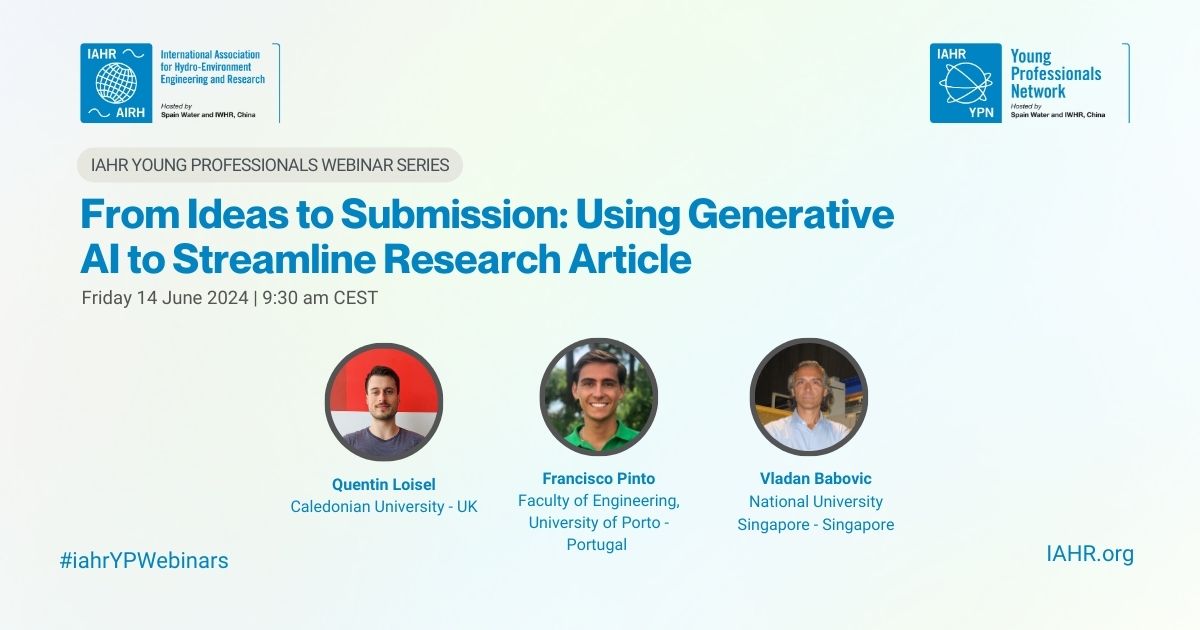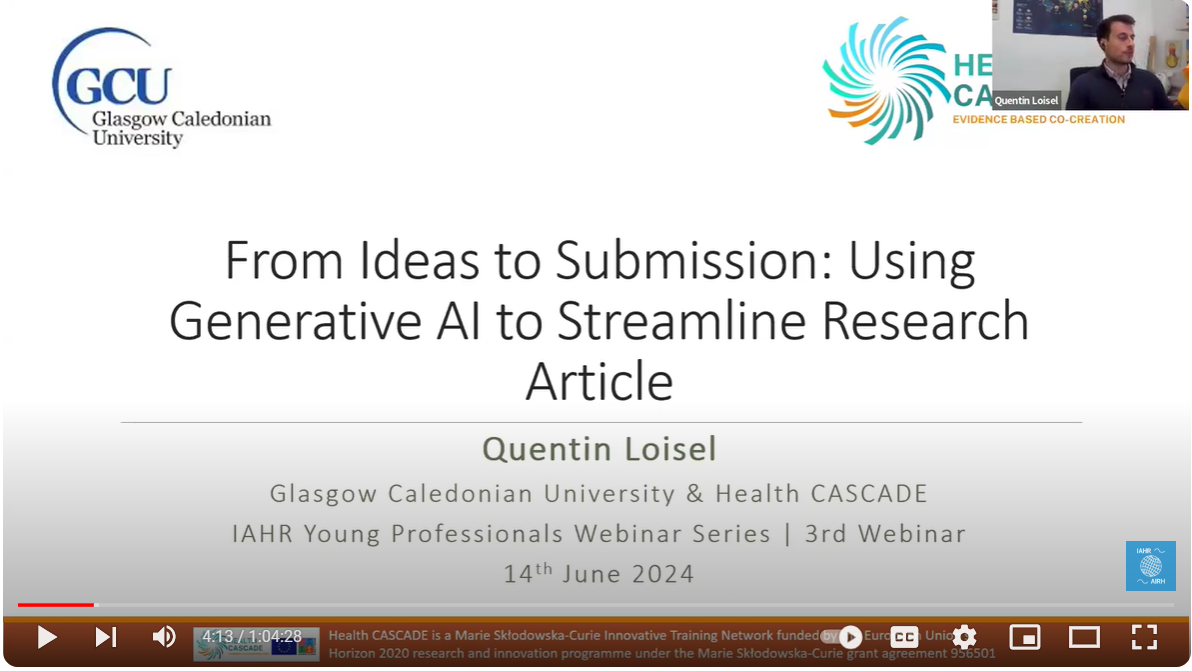Summary: IAHR Young Professionals Webinar Series | From Ideas to Submission: Using Generative AI to Streamline Research Article

Event Home Watch on Demand! Presentations Keep Updated
Introduction
Generative Artificial Intelligence (GenAI) offers accessible and versatile tools that hold the potential to impact all stages of scientific research, such as identifying research gaps, aiding in securing grant applications, data analysis, or even augmenting manuscript writing. Integrating GenAI into the research process could increase productivity while improving quality and accessibility. However, we are at the early stage of using these technologies. Some usages raise important ethical questions and jeopardise scientific integrity. In this webinar, we will see potential GenAI applications for each part of a scientific paper and highlight the benefits, risks and strategies to mitigate them.
Summary
 Generative artificial intelligence (AI) and, more significantly, large language models (LLMs) have seen an important progression and adoption since their wide public access opening a year and a half ago. Accessible and versatile, they already impact many activities, and research is not an expectation. They can support each step of the research process, from literature review to brainstorming research ideas and data analytics. The promise is to improve productivity, accessibility and innovation in science. However, the apparent accessibility of these technologies hides fundamental risks. An inadequate use could lead to serious ethical concerns, impacting the scientific integrity and, therefore, science quality. While metascience studies are necessary, it is crucial to approach and integrate these technologies under the expertise and responsibility of the researcher, who has to ensure scientific integrity. Finally, a generalisation of AI in science could lead to transformative changes in our system. All researchers must understand these questions to advocate for the use of AI for better science.
Generative artificial intelligence (AI) and, more significantly, large language models (LLMs) have seen an important progression and adoption since their wide public access opening a year and a half ago. Accessible and versatile, they already impact many activities, and research is not an expectation. They can support each step of the research process, from literature review to brainstorming research ideas and data analytics. The promise is to improve productivity, accessibility and innovation in science. However, the apparent accessibility of these technologies hides fundamental risks. An inadequate use could lead to serious ethical concerns, impacting the scientific integrity and, therefore, science quality. While metascience studies are necessary, it is crucial to approach and integrate these technologies under the expertise and responsibility of the researcher, who has to ensure scientific integrity. Finally, a generalisation of AI in science could lead to transformative changes in our system. All researchers must understand these questions to advocate for the use of AI for better science.